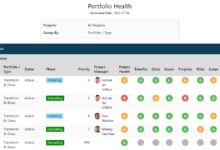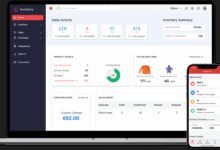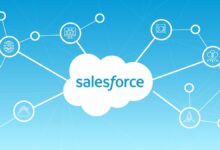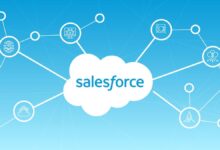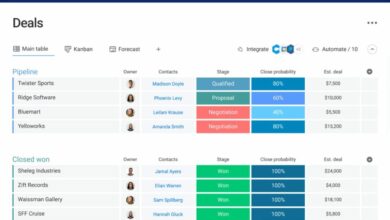CRM Consultant Rates: 7 Shocking Truths You Must Know in 2024
Thinking about hiring a CRM consultant but unsure what you’ll pay? CRM consultant rates vary wildly—discover what really influences pricing and how to get the best value.
Understanding CRM Consultant Rates: What You’re Really Paying For

When businesses look into CRM consultant rates, they often expect a simple hourly or project-based fee. But the reality is far more complex. CRM consultants don’t just configure software—they align technology with business strategy, streamline sales processes, and ensure user adoption. Their fees reflect not just time, but expertise, experience, and the tangible ROI they can deliver.
What Defines a CRM Consultant?
A CRM consultant is a professional who specializes in helping organizations implement, optimize, and manage Customer Relationship Management (CRM) systems. These systems—like Salesforce, HubSpot, Microsoft Dynamics, or Zoho CRM—are critical for managing customer data, sales pipelines, marketing automation, and service workflows.
- They assess business needs and recommend the right CRM platform.
- They design data architecture, workflows, and automation rules.
- They train teams and ensure smooth adoption across departments.
Unlike generic IT consultants, CRM consultants focus specifically on customer data strategy, user experience, and process efficiency. Their role is both technical and strategic, which is why crm consultant rates can reflect a premium for specialized knowledge.
Types of CRM Consulting Services
CRM consultants offer a range of services, each with different pricing models. Understanding these helps demystify why crm consultant rates vary so much:
- Implementation: Setting up a new CRM from scratch, including data migration, user roles, and integrations.
- Customization: Tailoring the CRM to fit unique business processes, such as custom fields, dashboards, or approval workflows.
- Integration: Connecting the CRM with other tools like email marketing platforms, ERP systems, or e-commerce stores.
- Training & Adoption: Teaching teams how to use the CRM effectively and ensuring long-term engagement.
- Optimization & Audits: Reviewing existing CRM usage and recommending improvements for better performance.
Each service requires different levels of expertise and time investment, directly influencing the final cost. For example, a full Salesforce implementation can take weeks and involve multiple stakeholders, justifying higher crm consultant rates compared to a one-day training session.
“A good CRM consultant doesn’t just set up software—they transform how your business interacts with customers.” — Sarah Lin, CRM Strategy Lead at TechGrowth Advisors
Factors That Influence CRM Consultant Rates
There’s no one-size-fits-all answer to how much CRM consultants charge. Several key factors shape the final price tag, and understanding them helps you make smarter hiring decisions.
Experience and Certification Level
Just like doctors or lawyers, CRM consultants with advanced certifications and years of experience command higher rates. For instance, a Salesforce-certified consultant with 10+ years in enterprise implementations will charge significantly more than a junior freelancer with basic HubSpot knowledge.
- Entry-level consultants may charge $75–$125/hour.
- Mid-level, certified professionals often charge $150–$250/hour.
- Senior or niche experts (e.g., Salesforce Architects) can charge $300+/hour.
Certifications from platforms like Salesforce Partner, HubSpot Academy, or Microsoft Dynamics validate expertise and often justify premium crm consultant rates.
Geographic Location
Where a consultant is based plays a major role in pricing. Consultants in high-cost cities like New York, London, or Sydney typically charge more than those in regions with lower living costs.
- North American consultants average $150–$300/hour.
- European consultants range from $100–$250/hour.
- Consultants from Asia or Eastern Europe may charge $50–$120/hour.
However, remote work has blurred these lines. Many companies now hire offshore consultants for cost savings, though they must weigh potential communication or time zone challenges.
Project Scope and Complexity
A simple CRM setup for a 10-person sales team is vastly different from a global rollout for a 1,000-employee organization with multiple subsidiaries. The complexity of data migration, integration needs, and customization directly impacts time and effort.
- Small projects (e.g., basic HubSpot setup): $5,000–$15,000.
- Mid-sized implementations (e.g., Salesforce for 50 users): $25,000–$75,000.
- Enterprise deployments: $100,000+.
Complexity also includes the number of integrations—connecting your CRM to tools like Mailchimp, Shopify, or NetSuite adds layers of technical work, increasing both time and crm consultant rates.
Hourly vs. Project-Based CRM Consultant Rates
One of the biggest decisions when hiring a CRM consultant is choosing between hourly and fixed-fee pricing. Each has pros and cons, and the right choice depends on your project’s clarity and budget constraints.
Hourly Rate Model: Flexibility with Risk
The hourly model is common, especially for ongoing support or undefined scopes. Consultants log time and bill based on actual work.
- Pros: Flexible for evolving needs; you only pay for time used.
- Cons: Costs can spiral if the project expands; harder to budget.
According to Gartner research, businesses that opt for hourly billing without clear milestones are 40% more likely to exceed their initial budget. That’s why setting weekly caps or requiring detailed time logs is crucial.
Fixed-Price Model: Predictability and Control
In a fixed-price model, the consultant agrees to deliver a defined scope for a set fee. This is ideal for well-scoped projects like a CRM migration or a standard implementation.
- Pros: Clear budget; no surprise overages.
- Cons: Less flexibility; scope changes may incur extra fees.
For example, a fixed-price project to implement HubSpot CRM with email integration and team training might cost $18,000. This gives the client certainty, while the consultant assumes the risk of delays.
“Fixed-price contracts force consultants to be efficient—but they also require crystal-clear requirements upfront.” — Mark Tran, CTO of CloudFlow Solutions
Industry-Specific CRM Consultant Rates
Not all industries use CRM the same way, and consultants with niche expertise often charge more due to specialized knowledge.
Healthcare and Life Sciences
In healthcare, CRM systems must comply with HIPAA and handle sensitive patient data. Consultants here need not only technical CRM skills but also regulatory knowledge.
- Average hourly rate: $200–$350.
- Common platforms: Salesforce Health Cloud, Microsoft Dynamics 365 for Healthcare.
- Key challenges: Data privacy, integration with EHR systems, audit trails.
Because of compliance requirements, consultants in this space often work with legal and IT security teams, increasing project complexity and justifying higher crm consultant rates.
Financial Services
Banks, insurance firms, and fintech companies use CRM to manage client portfolios, track compliance, and automate advisory workflows. These systems often integrate with core banking platforms and require high data accuracy.
crm consultant rates – Crm consultant rates menjadi aspek penting yang dibahas di sini.
- Average hourly rate: $180–$300.
- Common platforms: Salesforce Financial Services Cloud, Oracle CX.
- Key challenges: Regulatory reporting, client segmentation, security protocols.
Consultants must understand financial regulations like GDPR, MiFID II, or SOX, which adds to their value and cost.
Retail and E-Commerce
Retailers use CRM to personalize marketing, manage loyalty programs, and track customer journeys across online and physical stores.
- Average hourly rate: $120–$220.
- Common platforms: Shopify Plus with CRM integrations, Salesforce Commerce Cloud.
- Key challenges: Real-time inventory sync, omnichannel data consolidation, AI-driven recommendations.
While rates are slightly lower than in regulated industries, the demand for real-time data and personalization drives up technical complexity.
Top CRM Platforms and Their Consultant Rate Differences
Different CRM platforms have different ecosystems, learning curves, and certification requirements—all of which influence consultant pricing.
Salesforce: The Premium Standard
Salesforce dominates the enterprise CRM market, and its consultants are among the highest-paid.
- Average hourly rate: $175–$350.
- Common certifications: Salesforce Administrator, Sales Cloud Consultant, Architect.
- Why it’s expensive: Highly customizable, vast ecosystem, complex integrations.
According to Salesforce’s 2023 Jobs Report, demand for certified consultants grew by 34% year-over-year, driving up rates. A full Salesforce implementation can easily exceed $100,000 for mid-sized companies.
HubSpot: Affordable and User-Friendly
HubSpot is popular with SMBs and startups due to its intuitive interface and all-in-one marketing, sales, and service hubs.
- Average hourly rate: $100–$200.
- Common certifications: HubSpot CRM, Sales, and Marketing Certifications.
- Why it’s more affordable: Easier to learn, less complex than Salesforce, strong self-service tools.
Many small businesses opt for HubSpot because they can start with a lower-tier consultant and scale up as needed. However, advanced automation or custom coding can still push costs higher.
Microsoft Dynamics 365: Enterprise Powerhouse
Dynamics 365 integrates tightly with Microsoft 365 and Azure, making it a favorite for organizations already in the Microsoft ecosystem.
- Average hourly rate: $150–$300.
- Common certifications: Microsoft Certified: Dynamics 365 Functional Consultant.
- Why it’s competitive: Deep integration with Office apps, strong for ERP-CRM blends.
Consultants with both CRM and ERP experience are especially valuable here, often commanding rates at the top end of the scale.
Hidden Costs Behind CRM Consultant Rates
The quoted rate is rarely the full picture. Several hidden or indirect costs can inflate your total investment.
Onboarding and Discovery Fees
Before any work begins, consultants often conduct a discovery phase—interviewing stakeholders, mapping processes, and auditing existing systems.
- This can take 10–20 hours and may be billed separately.
- Some consultants include it in the project fee; others charge a retainer.
- Skipping this phase risks misalignment and costly rework.
Always ask whether discovery is included or billed extra when comparing crm consultant rates.
Post-Implementation Support
After go-live, issues often arise—users struggle with adoption, reports don’t work, or integrations fail. Ongoing support is critical but not always included.
- Monthly support packages range from $1,000–$5,000.
- Some consultants offer 30–90 days of free support; others charge per incident.
- Consider this a long-term cost, not just a one-time fee.
According to a Nucleus Research study, companies that invest in post-go-live support see 2.3x higher CRM ROI than those that don’t.
Training and Change Management
Even the best CRM fails if employees don’t use it. Training is often underestimated in cost and time.
- Group training sessions: $1,500–$5,000 per day.
- Custom training materials: $2,000–$10,000.
- Change management consulting: $10,000+ for large rollouts.
These costs are sometimes bundled, but often billed separately—another reason why crm consultant rates can seem low upfront but grow over time.
How to Negotiate CRM Consultant Rates
You don’t have to accept the first quote. With the right strategy, you can get better value without sacrificing quality.
Get Multiple Quotes and Compare Scope
Never hire based on price alone. Request detailed proposals from at least three consultants or firms.
- Compare not just rates, but deliverables, timelines, and included services.
- A lower hourly rate with vague scope can cost more than a higher rate with clear milestones.
- Ask for case studies or client references in your industry.
Use a scoring matrix to evaluate proposals objectively—weight factors like experience, certifications, and past success.
Bundling Services for Discounts
Many consulting firms offer package deals. For example, a “Full CRM Launch Package” might include implementation, training, and 60 days of support at a 15% discount.
- Ask about bundled pricing for multi-phase projects.
- Long-term contracts (e.g., 12-month support) often come with volume discounts.
- Non-profits or startups may qualify for special rates or pro-bono help.
Some platforms like Salesforce offer discounted licenses and grants for eligible organizations, which can reduce overall costs.
crm consultant rates – Crm consultant rates menjadi aspek penting yang dibahas di sini.
Consider Hybrid or Fractional Models
Instead of hiring a full-time consultant, consider fractional or hybrid models.
- Part-time consultants: Pay for 10–20 hours/week at a reduced monthly rate.
- Hybrid teams: Combine an in-house CRM admin with external expert guidance.
- Outsourced CRM management: Monthly retainer for ongoing optimization.
This approach can cut costs by 30–50% while maintaining access to high-level expertise.
Future Trends Impacting CRM Consultant Rates
The CRM consulting landscape is evolving fast. Staying ahead of trends helps you anticipate cost changes and make smarter investments.
AI and Automation Driving Up Expertise Demand
Modern CRMs now include AI for lead scoring, predictive analytics, and chatbots. Consultants who can configure and train these systems are in high demand.
- AI-savvy consultants charge 20–40% more than traditional ones.
- Skills in Einstein AI (Salesforce), HubSpot AI, or Dynamics 365 AI are becoming premium.
- Expect rates to rise as AI integration becomes standard.
According to IDC, 75% of new CRM implementations will include AI by 2025, increasing the value of consultants who can deploy it effectively.
Low-Code and Self-Service Tools Reducing Entry Costs
Platforms are making it easier for non-technical users to customize CRMs with drag-and-drop builders and templates.
- This reduces demand for basic configuration work, potentially lowering entry-level crm consultant rates.
- However, complex logic and integrations still require expert oversight.
- Consultants are shifting from “doers” to “advisors,” focusing on strategy over setup.
The role is evolving, but high-value consulting remains essential for ROI.
Remote Consulting Becoming the Norm
Post-pandemic, most CRM consulting is done remotely. This has increased competition and access to global talent.
- Businesses can now hire top consultants regardless of location.
- Remote delivery reduces travel costs, often passed on as savings.
- However, time zone differences and communication barriers remain challenges.
Remote work has democratized access but also intensified competition, pushing consultants to differentiate through specialization and results.
What is the average hourly rate for a CRM consultant?
The average hourly rate for a CRM consultant ranges from $100 to $300, depending on experience, platform, and location. Entry-level consultants may charge $75–$125/hour, while senior experts, especially in Salesforce or enterprise environments, can charge $300+ per hour.
Are CRM consultant rates higher for Salesforce than HubSpot?
Yes, Salesforce consultants typically charge higher rates than HubSpot consultants. Salesforce’s complexity, certification requirements, and enterprise use lead to average rates of $175–$350/hour, compared to HubSpot’s $100–$200/hour range.
Do CRM consultants charge flat fees or hourly?
Both models are common. Hourly billing offers flexibility but risks budget overruns. Flat-fee pricing provides cost certainty for well-defined projects. The choice depends on project scope and your risk tolerance.
What’s included in CRM consultant rates?
It varies. Some consultants include discovery, training, and support; others charge separately. Always clarify what’s included—common exclusions are data migration, third-party tools, and post-launch support.
How can I reduce CRM consulting costs?
You can reduce costs by getting multiple quotes, bundling services, using fractional consultants, or leveraging self-service tools for basic tasks. Investing in clear requirements upfront also prevents costly changes later.
CRM consultant rates are more than just a number—they reflect expertise, value, and the strategic impact a consultant can have on your business.From hourly fees to project-based pricing, the cost varies based on experience, platform, industry, and scope.While entry-level help might start at $75/hour, top-tier consultants can charge $350+ for specialized work.The key is understanding what drives these rates and how to get the best return on investment..
By considering hidden costs, negotiating wisely, and staying ahead of trends like AI and remote work, you can make smarter hiring decisions.Whether you’re implementing Salesforce, HubSpot, or Dynamics, the right consultant doesn’t just save you time—they help you grow revenue and improve customer relationships.So don’t just look at the price tag.Look at the value..
crm consultant rates – Crm consultant rates menjadi aspek penting yang dibahas di sini.
Further Reading:
